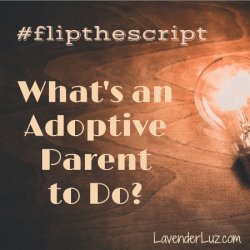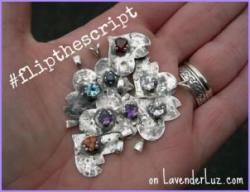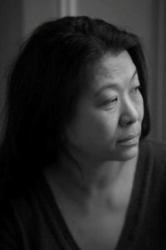
closed adoption
#flipthescript — What’s an Adoptive Parent to Do?
Barbara Freedgood guest posts today about the impact November’s #flipthescript movement has had on her as an adoptive mom and therapist. She addresses the question


Barbara Freedgood guest posts today about the impact November’s #flipthescript movement has had on her as an adoptive mom and therapist. She addresses the question

As we close out November — National Adoption Awareness Month — I’ve turned this space over to adoptees, sharing a small portion of the highly

See my last two #flipthescript posts for background on the phenomenon of the groundswell of adoptee voices emerging above the din during National Adoption Awareness